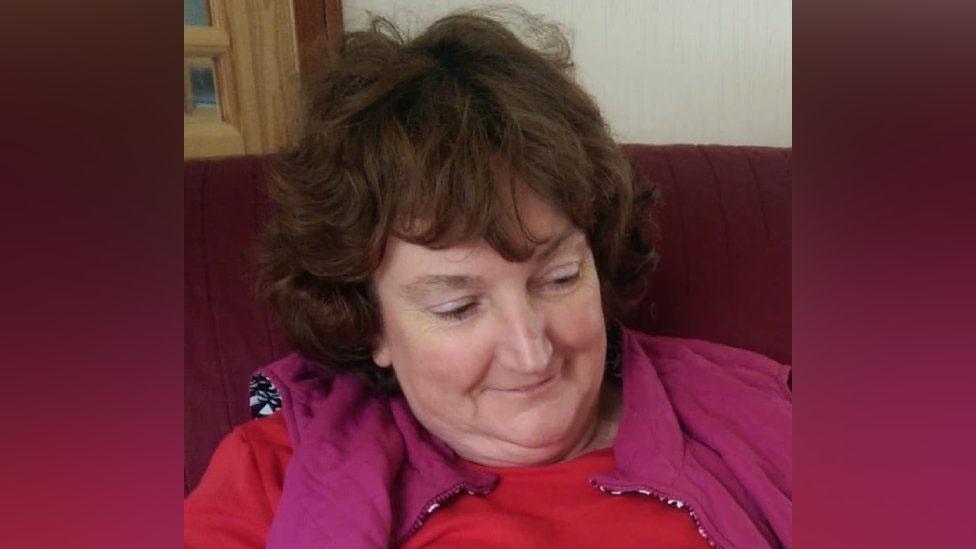Care failings before woman dismembered in her home
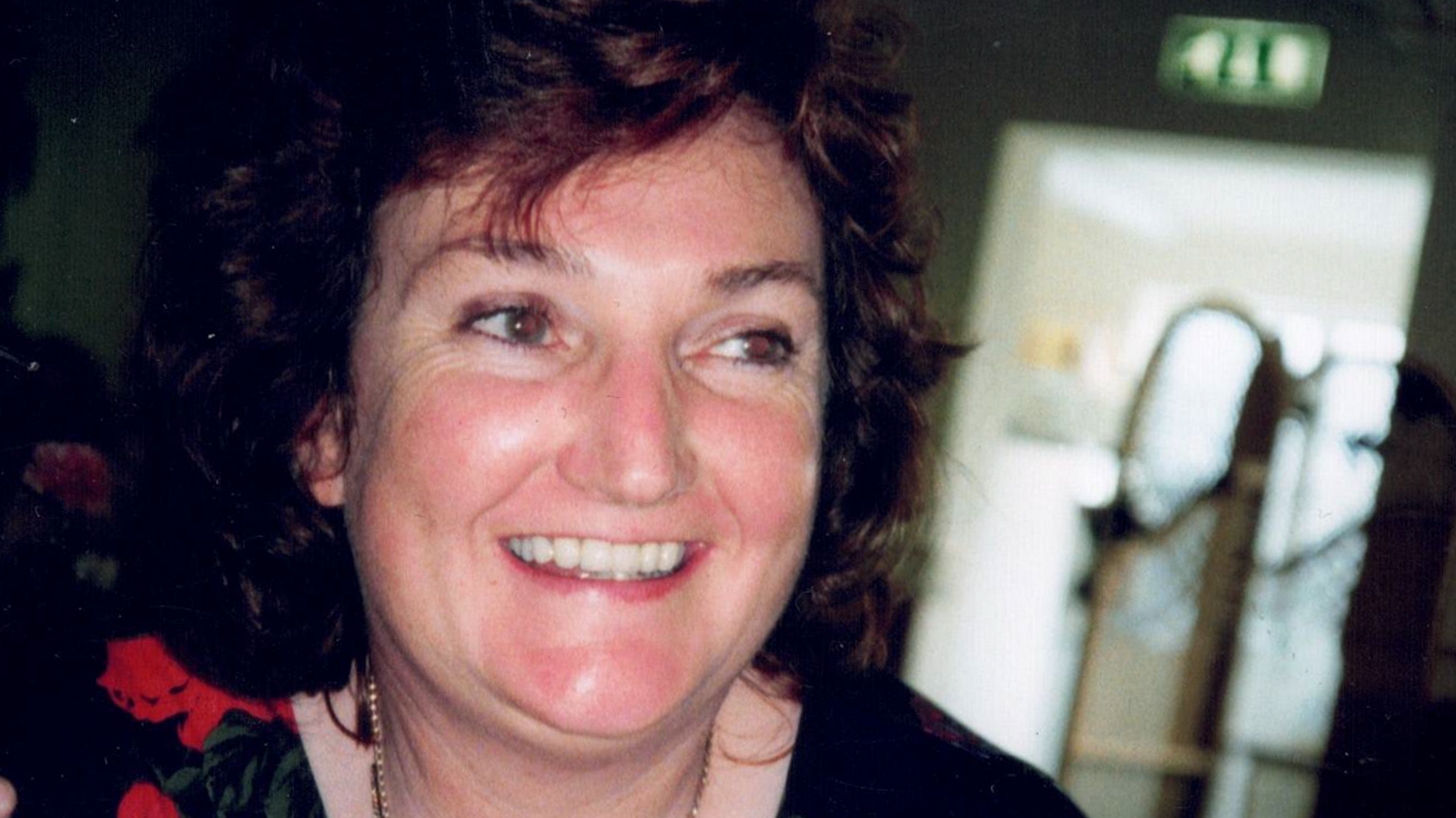
June Fox-Roberts was described by her family as a "force of nature"
- Published
Multiple failings have been identified in the case of a woman who was killed and dismembered in her own home.
Luke Deeley, 26, walked into June Fox-Roberts' home in Pontypridd, Rhondda Cynon Taf, and killed her in November 2021.
Family of Ms Fox-Roberts, 65, believe her death could have been avoided.
A safeguarding review concluded that opportunities had been missed and made a number of recommendations, while Cwm Taf Morgannwg health board apologised and accepted the recommendations.
WARNING: Contains upsetting content
Ms Fox-Roberts’ body was discovered on 21 November by her daughter Abi Sheppard and a family friend, who had become concerned after being unable to contact her.
Deeley, who had earlier been diagnosed with psychosis, had been living rough in Llantwit Fardre and Church Village, got into the house on St Anne’s Drive through an unlocked door in the early hours.
At his subsequent sentencing, the court was told he had been diagnosed with paranoid schizophrenia.
Due to his illness the Crown accepted his plea of manslaughter by reason of diminished responsibility.
Murdered boy's injuries seen as accident by doctor
- Published24 November 2022
New bid to find couple's murderer 30 years on
- Published26 July 2023
It is thought Ms Fox-Roberts came downstairs and was attacked by Deeley in the hallway.
She suffered head injuries before being dragged into the dining room where she was placed on a tarpaulin, decapitated and dismembered using an axe.
Deeley, then 25 and an art student, was arrested two days later after being spotted on CCTV living rough at a nearby tyre depot.
June Fox-Roberts' daughter Abi called 999 after finding her mum's body
He admitted manslaughter on the grounds of diminished responsibility and was detained indefinitely at Ashworth psychiatric hospital in April 2023.
The report criticised agencies for not sharing information about Deeley having "strange thoughts about women" or that they found pictures of naked women tied up with ropes in his student bedroom.
It said, while no one could have predicted what would happen, "all of the information pointed to someone who was experiencing a significant and insidious deterioration in their mental state", and who was also expressing, "unusual beliefs about, and acts of aggression towards, women".
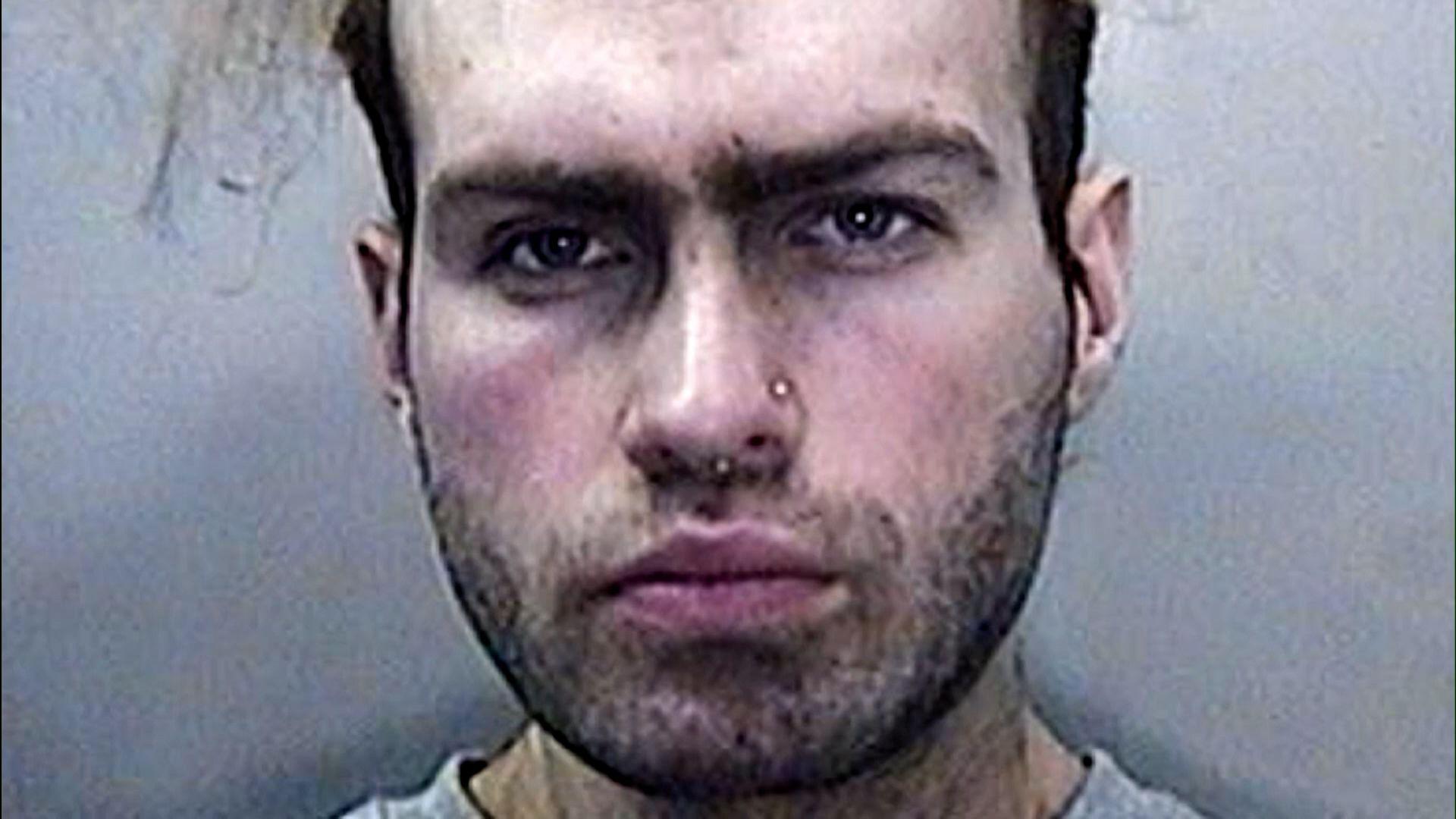
Luke Deeley was arrested two days after killing June Fox-Roberts
A single unified safeguarding review was carried out to assess the role of agencies involved in the case, including the health board, Rhondda Cynon Taf council, South Wales Police and the University of South Wales.
It found:
Poor communication between all agencies including education, health, local authority and police and between these agencies and the Deeley family
"Missed opportunities" in Deeley's care involving the Community Mental Health Team
No mechanism for sharing information when a patient moves between health board localities on a temporary basis, as Deeley did as a student
South Wales Police should have categorised the killing as a "critical incident" and the rationale for not doing so was not clear
The report comes in the wake of a string of cases where the role of authorities in caring for people with serious mental illness who have gone on to kill has been criticised.
Cwm Taf Morgannwg health board was also criticised after the killing of 88-year-old John Rees in a Co-op store by Zara Radcliffe in May 2020.
An inquest in May 2024 found serious failures contributed to the death of Dr Kim Harrison, who was killed by his son.
Ms Fox-Roberts, a former IT consultant who loved baking and ran a cafe for a time, was described by her family as "a force of nature, passionate, vibrant, determined".
Her daughter Abi Sheppard said: "She was just an absolute beacon in my life, my absolute rock."
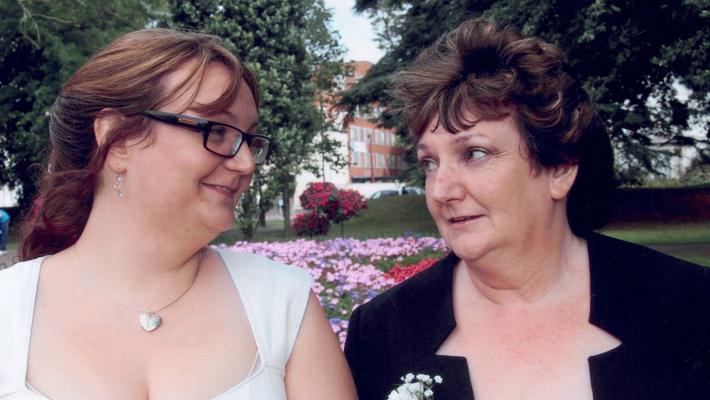
June Fox-Roberts' daughter Abi Sheppard said her mum's killing "destroyed my world"
She said she was angry the system "has let us down".
"He had a history of violence and aggression. And if he’d been cared for properly and monitored, would it have happened? We don’t know, we’ll never know," she added.
"It’s not good enough that people are falling through the cracks. There are consequences to that – my mother is one of those consequences and it’s destroyed my world because he wasn’t cared for properly."
Ms Sheppard said that, while the report had answered some of the family's questions, others remained, including "why that house, why that street, why the way he did it, why he dismembered her?"
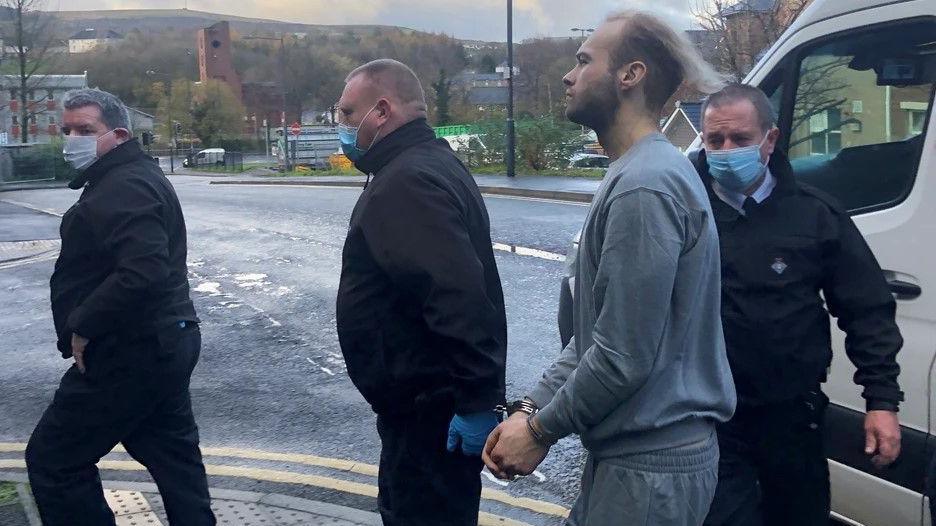
Luke Deeley spent time in a psychiatric hospital and stopped taking his medication for periods of time
Timeline of events
2018: Concerns over Deeley's mental health start and, by March 2019, he is prescribed anti-psychotic medication
June 2020: During a telephone consultation, he reports that his mental health is stable but he is told to keep taking his medication
September 2020: Deeley begins a degree course at the University of South Wales and is living in a different health board area
Mental health services make no further contact with Deeley, partly because the consultant psychiatrist is on maternity leave. The report calls this a "considerable oversight"
2021: Deeley returns home for the summer break and family get in touch with mental health teams expressing concerns because he is not sleeping and has smashed his phone. His mum believes he has not taken medication for more than a year
November 2021: Deeley's family are "desperate for help" and "felt their concerns were not heard"
November 18: He is reported missing and, three days later, kills Ms Fox-Roberts
In a statement, Deeley's parents said the health board "failed to provide the care and support needed by our son" and said, if it had, "this tragedy may have been prevented".
They added: "There have been too many mental health-related tragedies in this health board area.
"Due to a lack of accountability and failure to implement the lessons learned from previous reports, the same mistakes are needlessly being made time and time again."
They added: "We cannot imagine the devastation caused to the family of June Fox-Roberts and they are always in our thoughts."
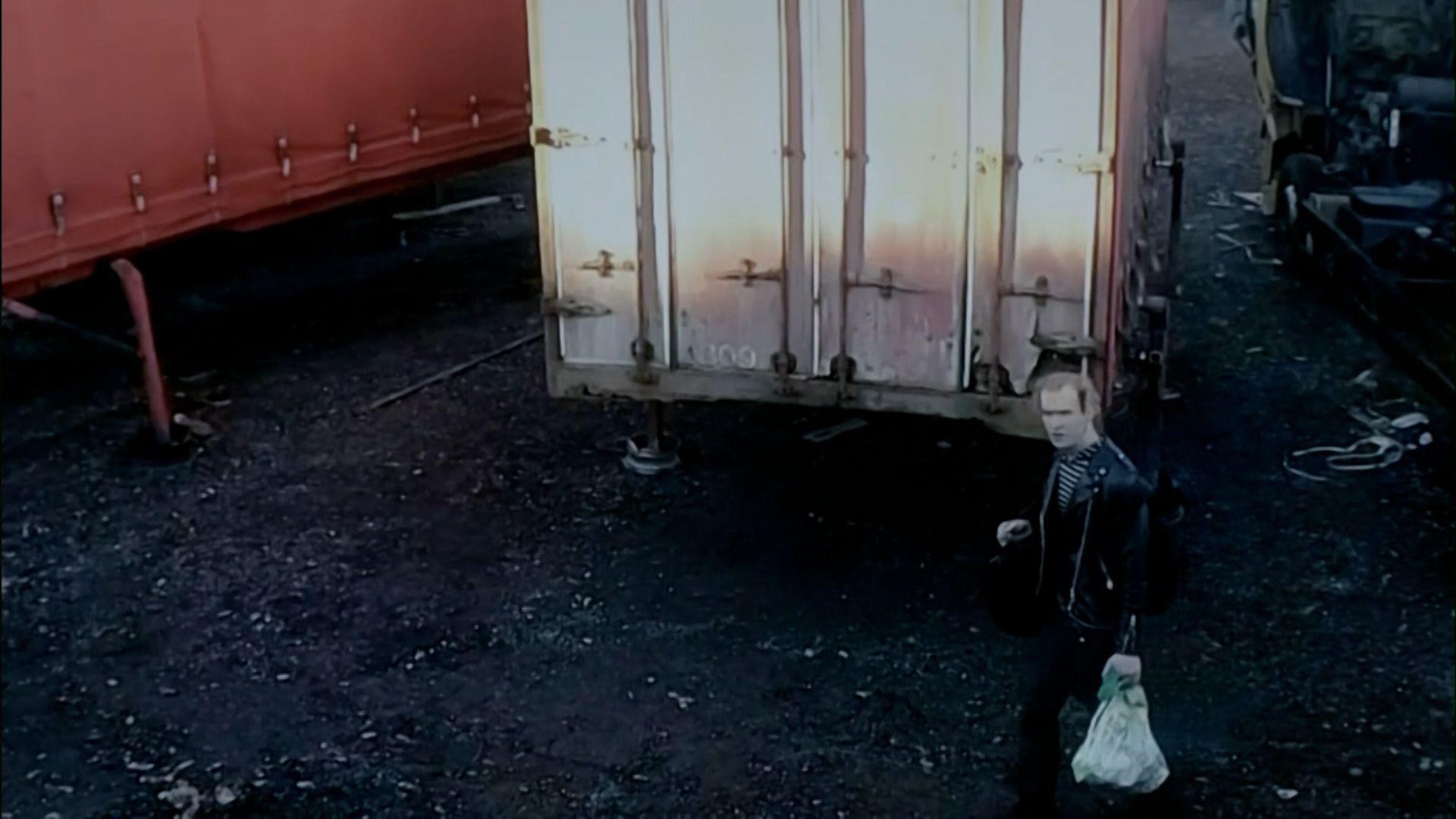
Luke Deeley was captured on CCTV cameras living rough in the days following the killing
Trisha Fox, June's daughter, said she felt "really angry" as her mother's case followed other, similar ones and there had not been changes made quickly enough.
"I feel it’s a total failure of the system he was supposed to be under the care of," she added.
"I think there’s something which needs to be looked at, immediately, not in two or five years’ time, not ‘we’ll take the appropriate steps as and when’ - it needs to be done now."
Ms Sheppard said the family hopes there will now be an inquest into her mother's death, "because we think that might provide us with more answers".
"We’re a family that’s been brought up by a strong, independent woman whose view was that you just keep swimming, and that’s what we do, but with this massive gaping hole in our hearts where we’re never able to catch our breath because there’s always something coming at us. It's exhausting."
Health board chief executive Paul Mears expressed his "deepest sympathies" to Ms Fox-Roberts' family and said the review recommendations reflected the findings of its own internal investigation.
"We apologise to both families for the instances in which Luke Deeley's care fell short of the high standards we expect for all of our service users," he added.
A spokesperson for Rhondda Cynon Taf council said: "We will work with our partners to ensure the recommendations are fully implemented, and commit to learning lessons from this tragic incident.”
Alun Thomas, chief executive of mental health charity Adferiad, said the report identified some issues in common with other cases, including lack of communication with patients’ families and carers, and lack of coordination and joined-up working between services.
It was clear that Luke Deeley had “slipped straight through the net” and that his family were “left adrift” with their concerns.
“It’s very, very disappointing when we’ve heard about lessons being learnt in the past, that they don’t appear to have been learned on this occasion,” said Mr Thomas.
He echoed calls in the report for Welsh government to commission a thematic review of learning points from reviews of four mental health homicides in the Cwm Taf Morgannwg area between 2018 and 2021.
Related Internet Links
- Published25 November 2021
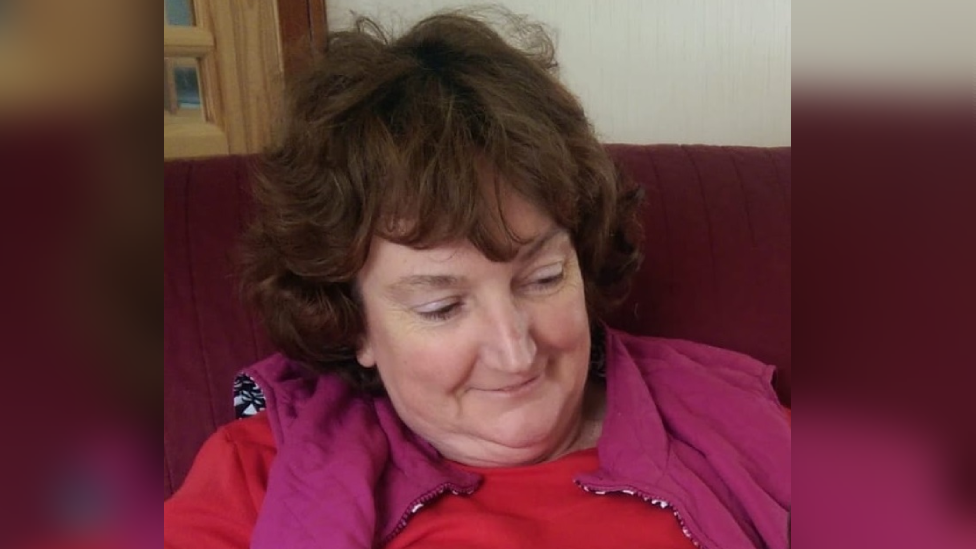
- Published26 November 2021
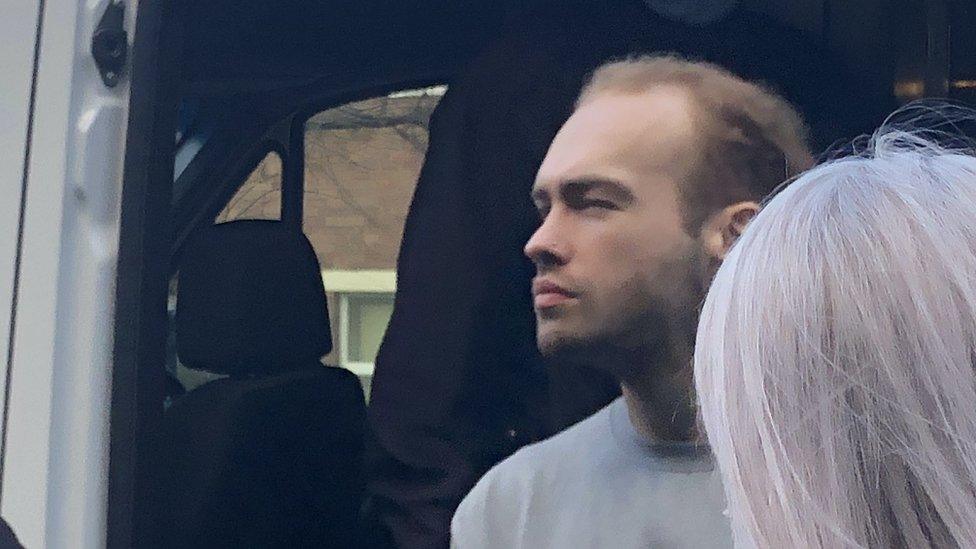
- Published15 March 2023
